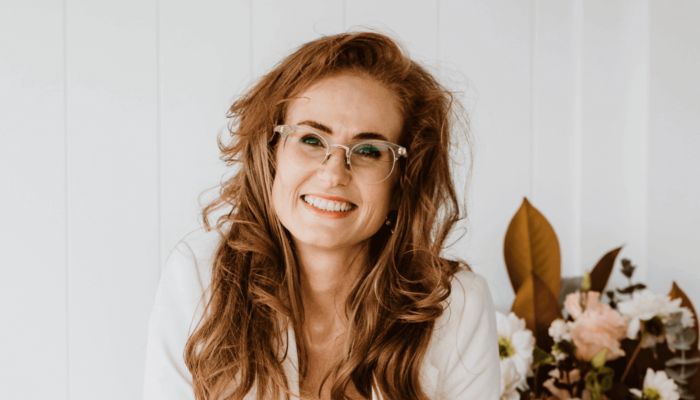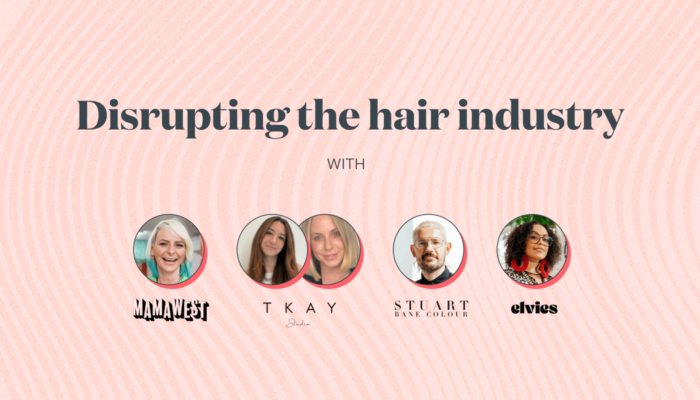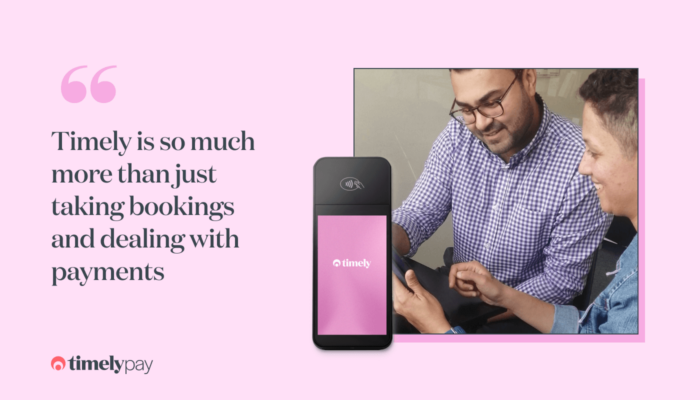Real talk with My Father’s Barber
Matt Brown is the owner/director of My Father's Barber in Christchurch, New Zealand. He’s also an internationally acclaimed hair artist and educator, an author, speaker, husband, and father of three.
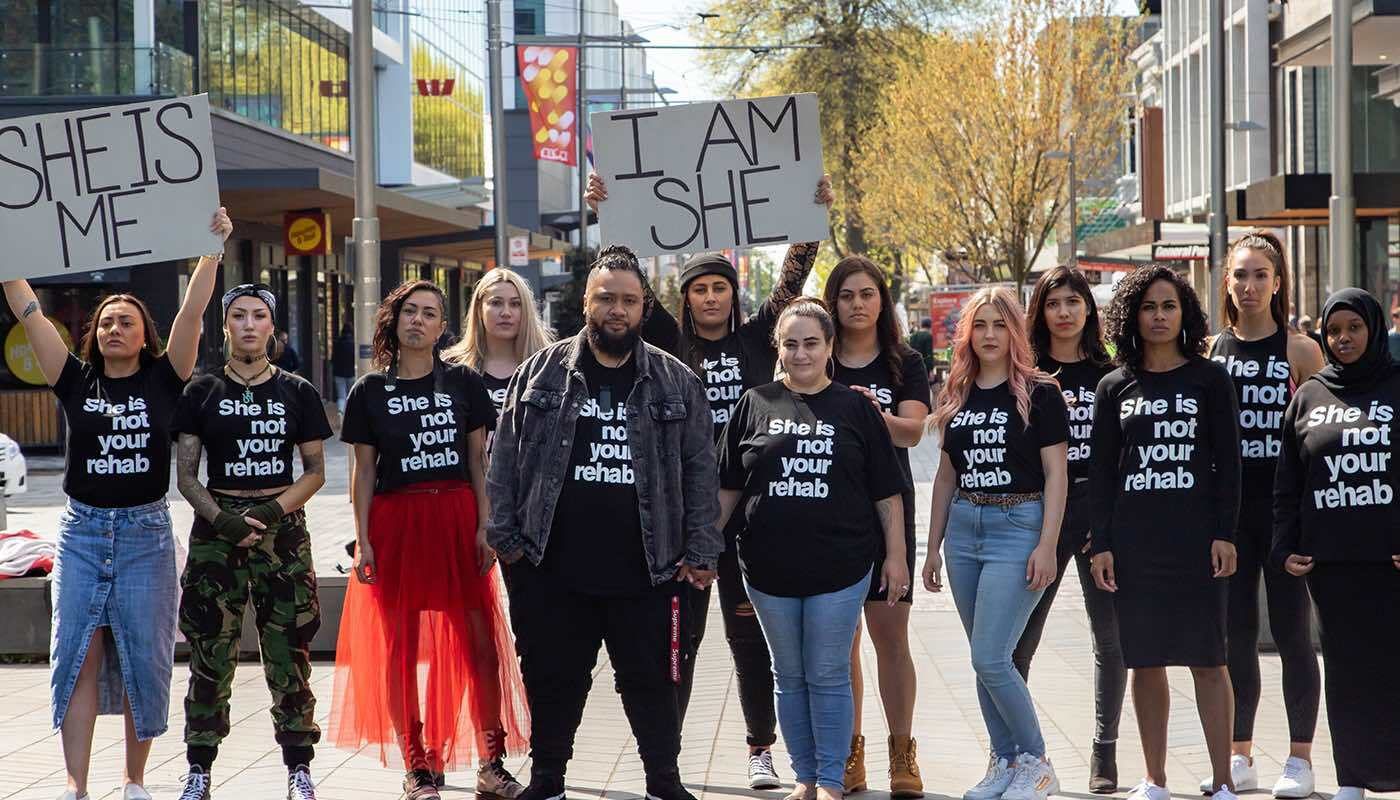
Matt is passionate about raising awareness for mental health, domestic violence, and suicide, and regularly visits the Christchurch City Mission offering his time to give haircuts to the homeless. He calls his barber chair “a holy space” where he encourages men to talk openly about their lives and problems, and he and his wife Sarah co-founded the movement She Is Not Your Rehab to address domestic violence in New Zealand.
Tell us about how you got started in the barber industry
I started in my backyard, cutting family and friends’ hair. Officially, I started barbering about 12 years ago, and went into business out of my little tin garden shed in a little place called Aranui here in Christchurch.
I was attracted to the craft of barbering; the creativity and the art behind it. I’d jump on YouTube and see barbers overseas doing amazing hair art, and portraits of people on the back of people’s heads. I thought, “I could do this!”, so I got into barbering. My first attempt on some hair art like that was a portrait of Tupac. It took me two hours, and when I uploaded it to Facebook, the official Tupac page in America on Facebook shared my work! Within a day it had received more than one million likes and shares.
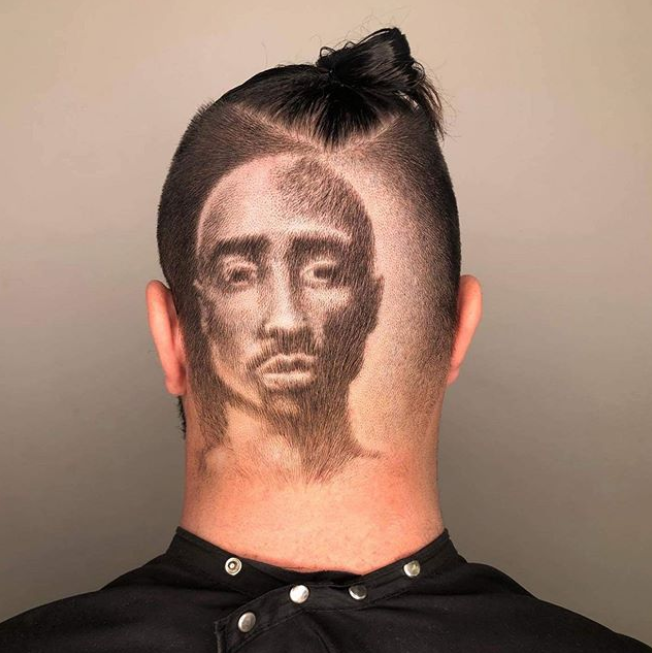
That was the beginning of my barbering career. There weren’t many people down under doing hair art, so that’s what put me on the international stage.
How did you come to open your own barber shop?
After cutting hair in the garden shed, I needed more space so I hired a chair upstairs in a friend’s salon. I stayed there for a few months, and then another hairdresser helped me out, and then I hired a salon. It was just a three-chair barbershop, but within a year we outgrew the place!
Before we opened up our barbershop, my wife and I went to America and toured around the country because I wanted to experience the culture from the home of the barbershop. What I experienced sitting in these traditional hip-hop barbershops in the ghetto and the hood, and even in Manhattan in New York, was more than just cutting hair.
The barbershop was looked at as a cornerstone of the community; a place where men in particular could just come and talk. I wanted to bring that culture back to Aotearoa
We opened our shop in Christchurch, and now we’ve got 13 staff here and we own another shop in Palmerston North with a few more staff. The guy who runs the Palmerston North shop for us worked for us for four years, so he understands our kaupapa, the purpose of the shop.
A lot of your passion lies in the relationships and the time you spend with your clients. How did you find being closed over lockdown?
It was hard because our whole kaupapa, our purpose and our value, is more than just the haircut. Our headline slogan is, “Giving great cuts, inspiring great men”, because we all believe every single man is born for greatness. Their upbringing or the situation that they were raised in can affect a lot of people’s belief system, but we believe that in each and every single one of the men that sit in our chair, there is a spark of light.
As barbers, we try to encourage men through the chair. A lot of guys walk out of the shop looking flash, but we want to make them feel good too; they’re more than just their look.
During lockdown, we made it our mission to keep connected with our clients and our community, because we know businesses are made up of people, just like communities are made up of people. At the end of the day, if you take money and buildings and everything away, you’re left with people.
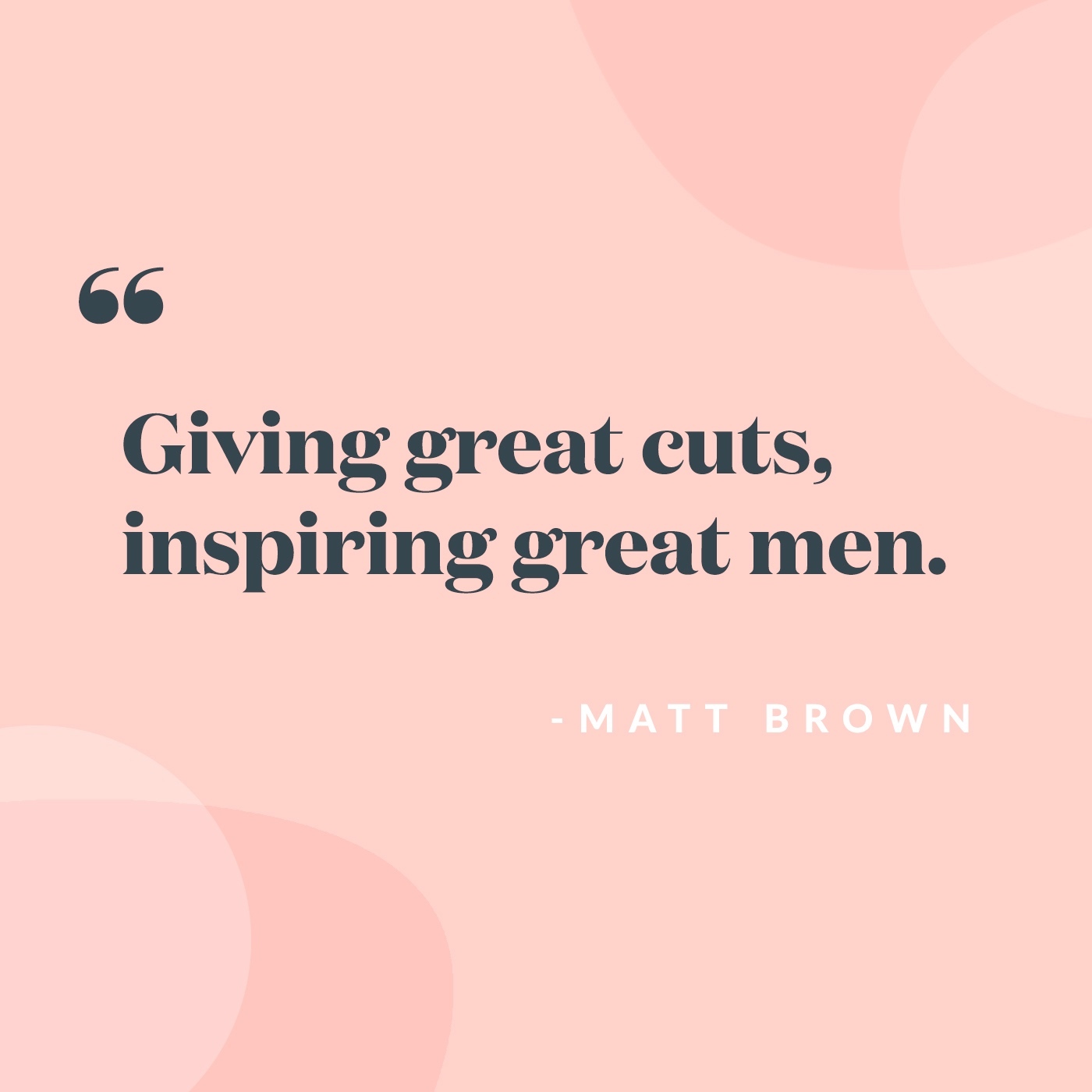
You’ve had sobering experiences with domestic violence which is reflected in the work you do for She Is Not Your Rehab. How Did that movement come about?
In New Zealand we have some of the worst statistics in the developed world for a small country, which horrifies me. The majority of our followers are men, and so we created the She Is Not Your Rehab movement, birthed out of my personal experience of witnessing my mother stay in a violent relationship with my father. Her reason for staying in that relationship was that she wanted us kids to have a father, but as a little boy, I just wanted my mum to be alive. But she stayed in the relationship hoping that he would change, but my father never changed. It was just another excuse for him to get drunk and abuse my mother.
So that’s where the term She Is Not Your Rehab came from. We’re not specifying that it’s just women. You could use anything as your rehab; food, drugs, or a male partner. For us, it’s about encouragement; it’s our invitation for men to come and do the work, because if you don’t do the work to heal yourself and your childhood trauma, you’re going to project that onto your children and partners.
A lot of guys have reached out to us through lockdown. We’ve received heartbreaking emails and stories via private messages over Facebook and Instagram, and sadly even children as young as the age 11 have written to us saying they’re scared for their lives.
With the barbershop, I just wanted to create a safe space where people could come and talk, and we’ve now transitioned that to online. A lot of men know that they can come into our barbershop and talk, so over lockdown we wanted them to feel like they could write to us online instead.
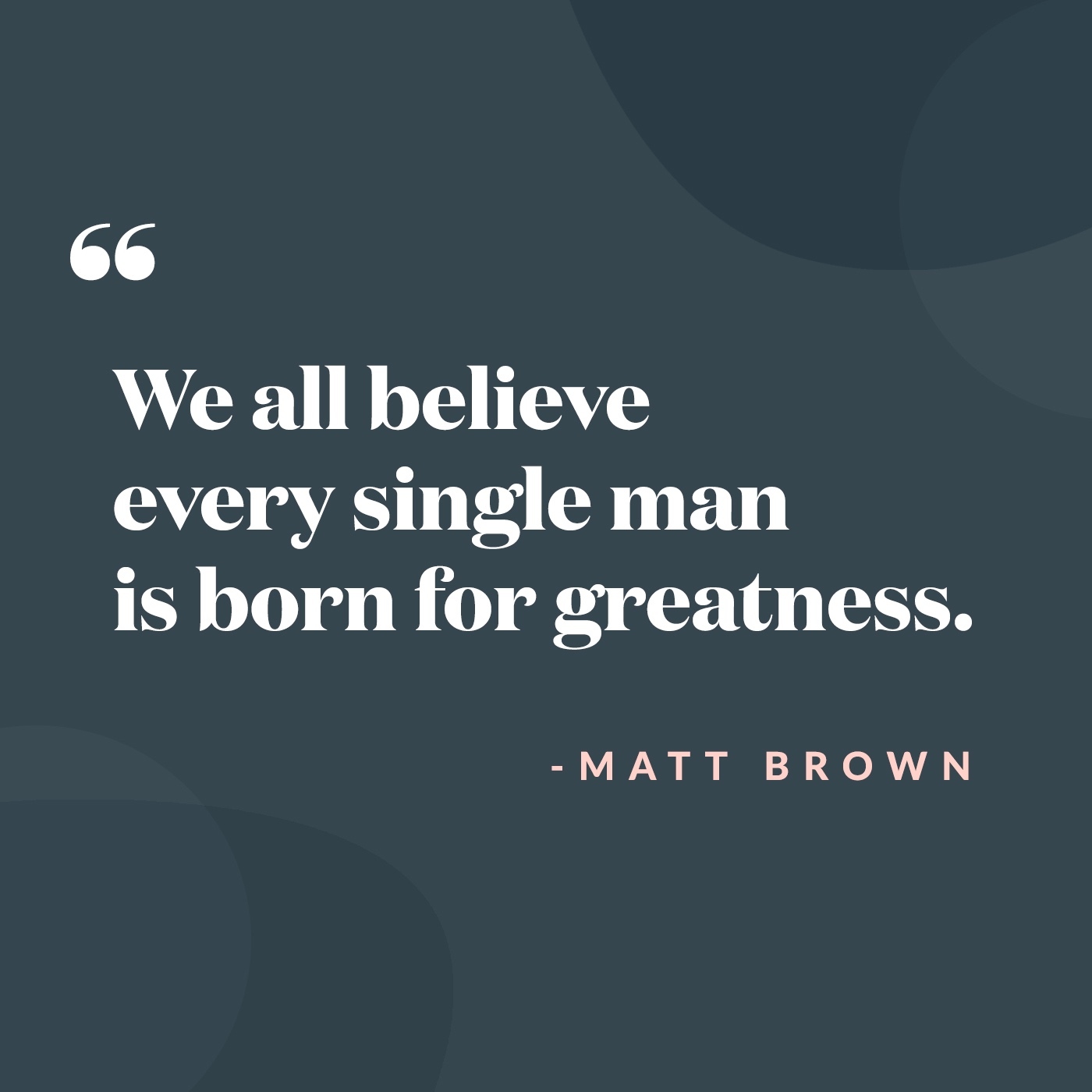
You have quite a big social media following – what’s your secret to building your social media?
People always ask me how I got so many followers, and my answer is always that I just try to be authentic. If you jump on most barbers pages you’re just going to see photos of haircuts, but if you want to attract the public to come into your barbershop, you need to speak authentically and produce content that people want to see. There are more than 7.5 billion people in the world, but there’s only one of you, and what you bring to the table on Instagram and Facebook is unique.
I was lucky to jump on the social media platform when there weren’t many other barbers down under doing it, so I was one of the first ones to put up portraits of hair art. There were others who inspired me, like my brother Lance from Australia, another brother Allan in Auckland, who owns New Flava’s barbershop, and Lance, who owns The Loft barbershop.
Even now if you go through my Instagram, I don’t put up many photos of haircuts. I’m putting up stuff that I want to be known for, which is integrity, which is speaking against and about stuff that I’m passionate about. I don’t want to be just known for cutting hair, because I’m more than just a barber. I’m a father and a husband first, and then I’m a creative and a barber.
That’s my encouragement to anyone who wants to grow their social media. Just be yourself, because what you bring to the table, no-one else can bring.
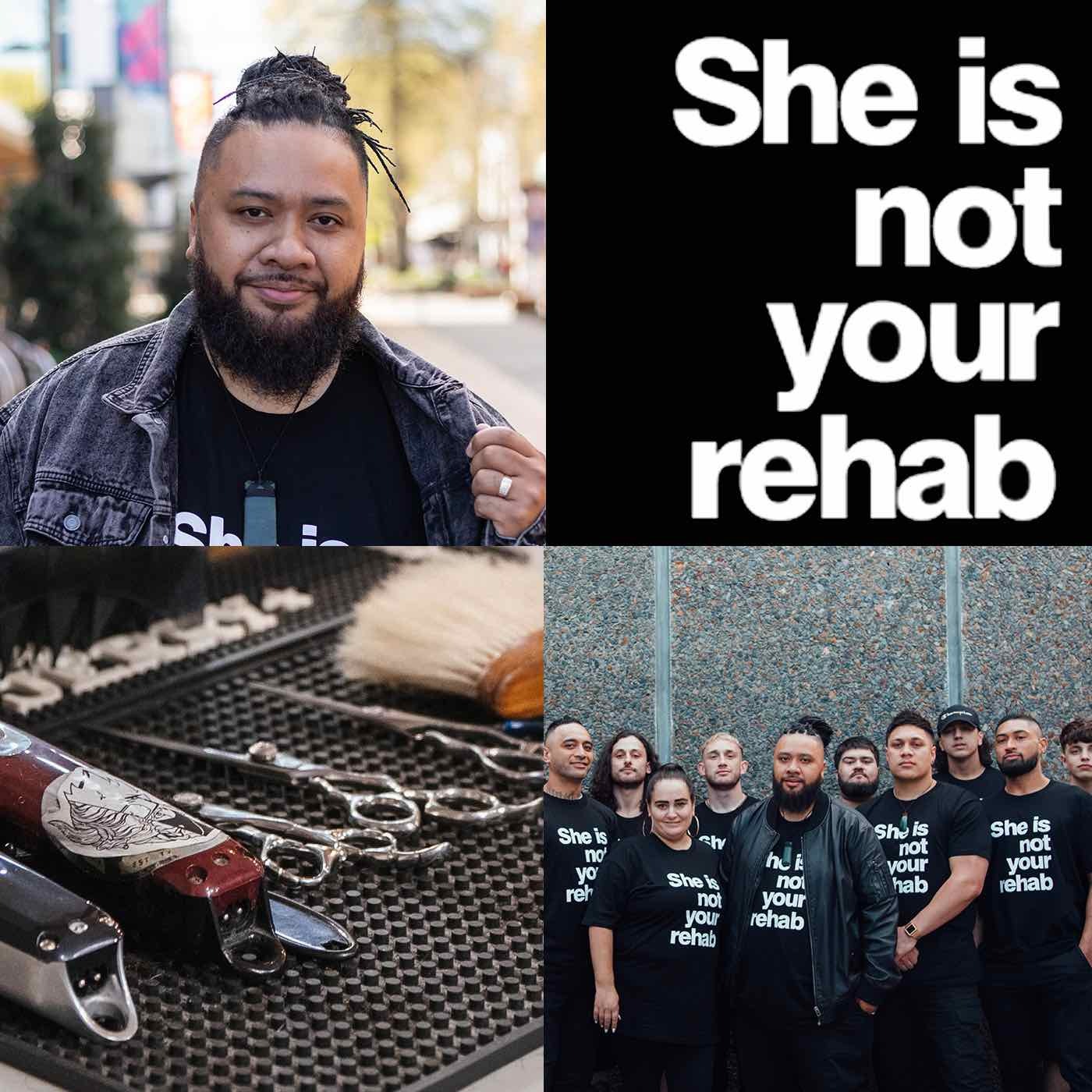
How did you get onto appointment booking software?
We were using Google Calendar for all our bookings, which just wasn’t working well for us. We’re open from 8am till 10pm, and because our shop is so busy, we’re always booked up in half-hour appointments. Our receptionist did her best, but there’s always human error.
The final straw was a bunch of pumping, busy Saturday’s when there were double bookings. We got so frustrated, we decided to do something about it!
My manager discovered Timely at Barbercraft, and she was very picky about appointment booking software! She’s worked with people her whole life, and she knows we need lots of support and for our booking system to have our back at the busiest times. After meeting the Timely team and seeing it in action she was sold, and within the first two weeks, I was like “Why the heck did I not choose Timely years ago?”
Since we’ve been with Timely, you guys have just been amazing. We haven’t had one double booking!
If there’s been a glitch, usually on our side, or we don’t understand something, your people are so nice and attentive and fast. You guys are just such genuine people, and I don’t feel like I’m talking to a software company.
What’s your stance on walk-ins after Covid?
Barbers traditionally were all about walking in and waiting, but I was always of the mindset that times are changing and people want to make appointments. Men don’t want to just sit around on a weekend, or their day off, and wait for two hours for a haircut, so appointments have worked really well for us.
We’ve educated our clients; you’ll always have the old, traditional guy who doesn’t like it, but then they come back, and they get on board. I’m so happy that a lot of barbers are on board too; it’s the future.
Thanks to Timely, online bookings are easy for us, and take all the stress out of double bookings. Thank you for making my business and our jobs easier!
So, what does the future hold for you?
We’re working on an online barbering school! It’s a full package; not just learning how to cut hair, but also how to have these valuable conversations, how to create relationships with clients and make connections. It’s also about doing good business. A lot of barbers don’t pay their taxes properly, especially barbers who are on commission, so we’re all about doing that stuff properly.
I’m also working with professional therapists on wellbeing for men, so men are healing their inner child. That’s the future at the moment!
